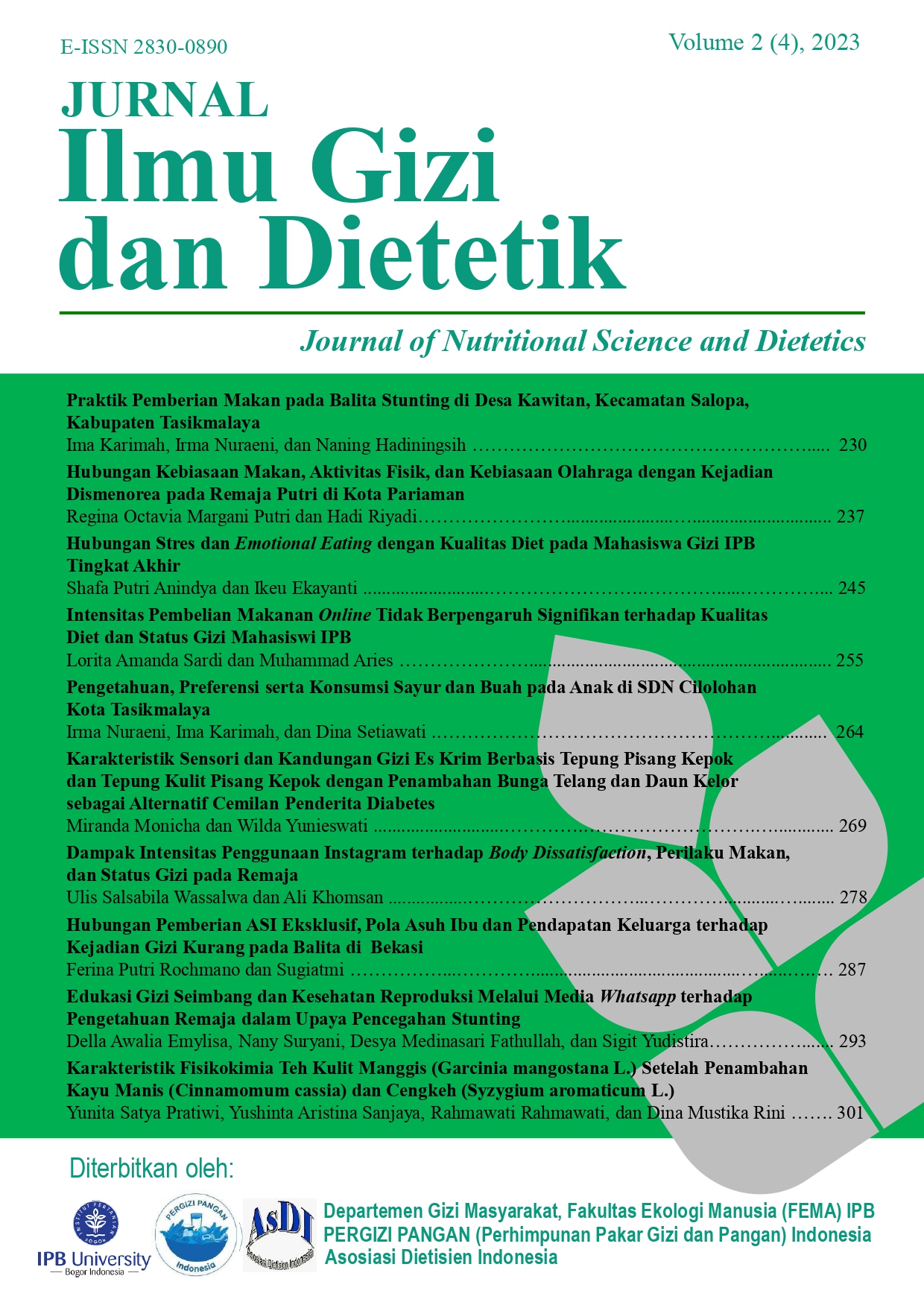Hubungan Stres dan Emotional Eating dengan Kualitas Diet pada Mahasiswa Gizi IPB Tingkat Akhir
Abstract
This research aimed to determine and analyze the relation of stress and emotional eating to diet quality and nutrient intake among final-year nutrition students at IPB University. The design of this research was a cross-sectional study with 50 final-year Community Nutrition IPB students as subjects. The research was conducted online from May to June 2023. Stress level were measured using Depression, Anxiety, Stress Scale 42 (DASS-42) questionnaire and emotional eating was assessed using the Adult Eating Behavior Questionnaire (AEBQ). Most of the subjects experienced mild stress (34%) and emotional undereating (EUE) (60%). Most of the subjects fell to the “HEI need improvement” category (70%). The analysis results showed that stress had no relationship with emotional overeating (EOE) and emotional undereating (EUE) (p>0.05), EOE and EUE had no relationship with diet quality (p>0.05). Stress levels had a negative correlation with diet quality (p=0.000;r=-0.479). Stress levels had positive correlation with the adequacy of energy (p=0.015;r=0.344), protein (p=0.004;r=0.396), and fat (p=0.005;r=0.388). EOE had positive correlation with the intake of energy (p=0.020;r=0.329), protein (p=0.049;r=0.280), fat (p=0.028;r=0.312), and carbohydrate (p=0.019;r=0.330). It was also found that EUE had negative correlation with protein intake (p=0.043;r=-0.288) and carbohydrate intake (p=0.028;r=-0.311).


